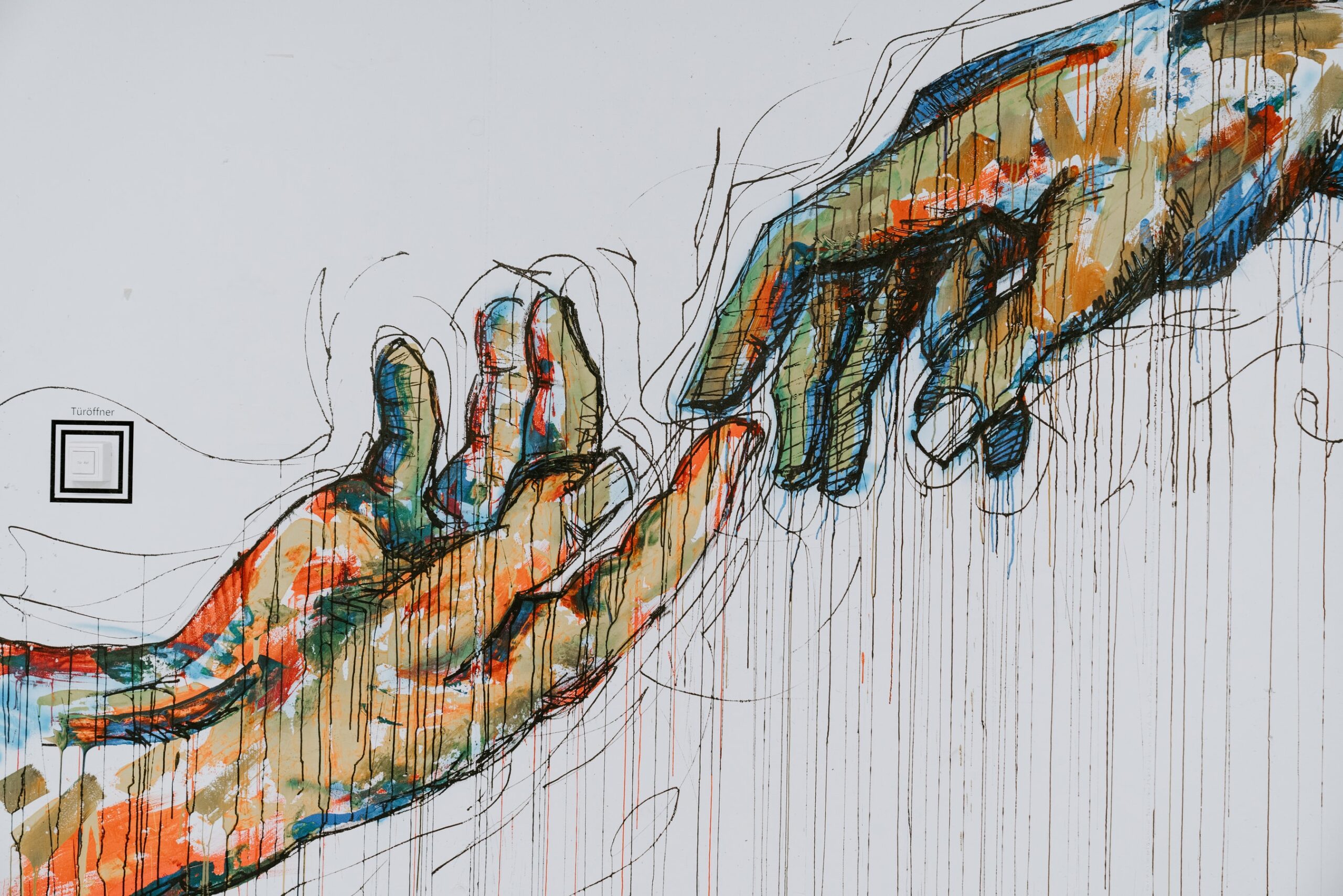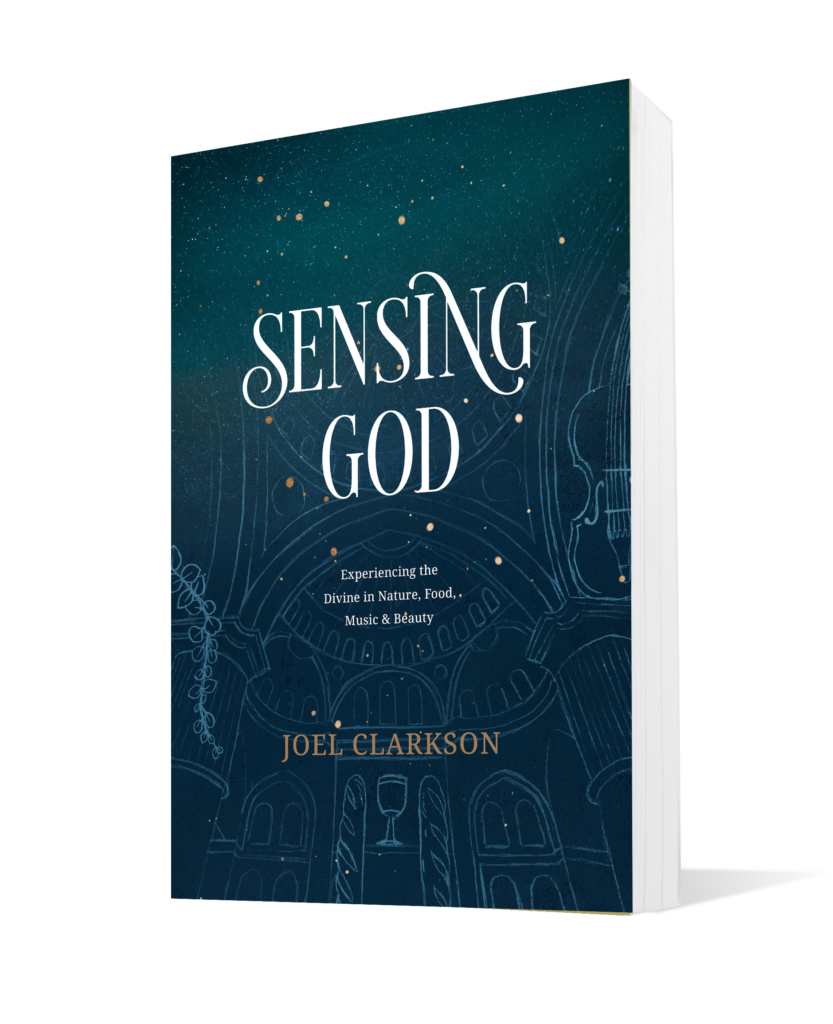One of the key repeated elements of Jesus’ life is the way that touch plays into His interaction with others. Constantly, Jesus comes into contact with those around Him. Perhaps the most profound underlying aspect of touch in the Gospels is how often Jesus heals through touch: laying hands on the sick, touching the eyes of the blind, bringing a dead girl back into life again. We know from the disciples’ own testimony in that story that countless people in the ever-present crowds around Jesus were touching Him, drawing close to Him. Even when Jesus Himself does not do the touching, those who in faith touch the hem of His robe find they have received the fullness of His healing power. In Jesus is the vision of one so deeply in submission to His Father that His whole life, body and soul, is given as a gift for others. The visceral, immediate nature of this givenness reaches out of the page and draws us into awareness of it, won’t let us avoid it. It challenges us, like a parable should, to enter into the story and gain a deeper understanding of the Kingdom.
Touch is so central to Jesus’ heart for the world that He spent some of what He knew to be the precious, final moments of His life focused on touch as a profound gift to His disciples: stooping down and washing their feet as an act of radical humility.
I love the way that Michael Card encapsulates this moment in his song, “The Basin and the Towel,” drawing us into the parable itself:
In an upstairs room, a parable
Is just about to come alive.
And while they bicker about who’s best,
With a painful glance, He’ll silently rise.
Their Savior Servant must show them how
Through the will of the water
And the tenderness of the towel.
Card masterfully helps us see through the words into the story at hand. The disciples hold each other at a distance while they fight for their own sense of self, their own rights. The act of foot washing is an act of abasement, something that would have been considered offensive for someone of any social standing to participate in. Card captures this in the chorus of the song, expressing the paradoxical way in which making one’s self poor for the sake of others is the pathway to the riches of shared communion:
And the call is to community,
The impoverished power that sets the soul free.
In humility, to take the vow,
That day after day we must take up the basin and the towel.
In Jesus, human touch becomes a living expression of the ability we have to give ourselves for the sake of others, to lose our lives so as to find them again in those around us. In his second verse, Card presses this parable into our own lives, asking us to consider its call:
In any ordinary place,
On any ordinary day,
The parable can live again
When one will kneel and one will yield.
To touch another, in the economy of Christlike activity, is never to demand or require but rather to give, to offer freely, to empty ourselves in humility so as to be given to those around us, and in turn, to receive the gift of them. True community, and communion, only comes through this willingness to let go of our desires and instead seek the good of those around us. We don’t need parables to hear it in Jesus’ words throughout the Gospels, given to us plainly and directly:
Whoever wants to be first must take last place and be the servant of everyone else.
Many who are the greatest now will be least important then, and those who seem least important now will be the greatest then.
There is no greater love than to lay down one’s life for one’s friends.
The taking up of the basin and the towel through human touch can be seen in any relationship: It can be seen in the embrace of person scorned by others, or when someone silently holds the hand of a grieving friend; it can be seen in the attentive affection of a parent who refuses to be embarrassed by an upset child and holds them close instead, and it can be seen in the love of an adult child who has become the caregiver for their elderly parent; when people lock arms with the oppressed to protest violence or oppression or racism, it is there too. There is no limit to the way that touch, given as gift, reveals the beauty of God’s lifegiving power, drawing people together in communion and community.
Sources
[I] Michael Card, “The Basin and the Towel,” on Michael Card, Poiema (Nashville: Sparrow, 1994), compact disc.
[II}Mark 9:35.
[III]Matthew 19:30.
[IIII} John 15:13.



